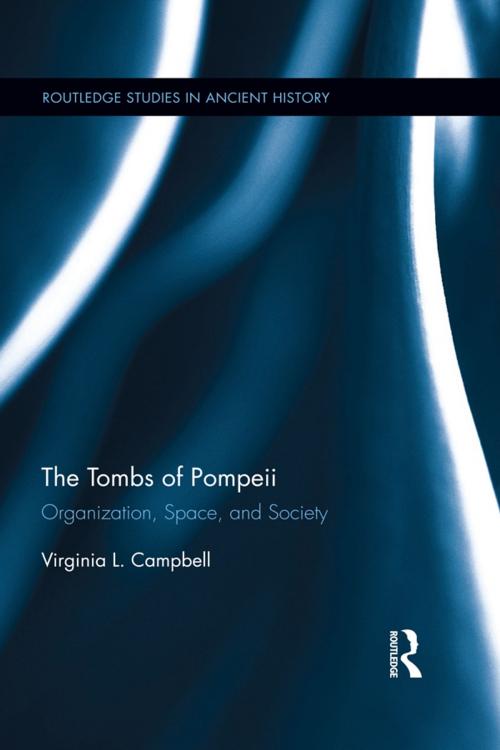The Tombs of Pompeii
Organization, Space, and Society
Nonfiction, Social & Cultural Studies, Social Science, Cultural Studies, Death & Dying, History, Ancient History, Rome| Author: | Virginia L. Campbell | ISBN: | 9781317611387 |
| Publisher: | Taylor and Francis | Publication: | December 5, 2014 |
| Imprint: | Routledge | Language: | English |
| Author: | Virginia L. Campbell |
| ISBN: | 9781317611387 |
| Publisher: | Taylor and Francis |
| Publication: | December 5, 2014 |
| Imprint: | Routledge |
| Language: | English |
This book offers a comprehensive overview of the tombs of Pompeii and its immediate environs, examining the funerary culture of the population, delving into the importance of social class and self-representation, and developing a broad understanding of Pompeii’s funerary epigraphy and business. The Pompeian corpus of evidence has heretofore been studied in a piecemeal fashion, not conducive to assessing trends and practices. Here, a holistic approach to the funerary monuments allows for the integration of data from five different necropoleis and analysis of greater accuracy and scope.
Author Virginia Campbell demonstrates that the funerary practices of Pompeii are, in some ways, unique in to the population, moving away from the traditional approach to burial based on generalizations and studies of typology. She shows that while some trends in Roman burial culture can be seen as universal, each population, time, and place constructs its own approach to commemoration and display. Including an extensive catalogue of tomb data and images never before assembled or published, this collective approach reveals new insights into ancient commemoration. The Tombs of Pompeii is the first English-language book on Pompeian funerary rituals. It’s also the first in any language to provide a complete survey of the tombs of Pompeii and the first to situate Pompeian differences within a wider Roman burial context.
This book offers a comprehensive overview of the tombs of Pompeii and its immediate environs, examining the funerary culture of the population, delving into the importance of social class and self-representation, and developing a broad understanding of Pompeii’s funerary epigraphy and business. The Pompeian corpus of evidence has heretofore been studied in a piecemeal fashion, not conducive to assessing trends and practices. Here, a holistic approach to the funerary monuments allows for the integration of data from five different necropoleis and analysis of greater accuracy and scope.
Author Virginia Campbell demonstrates that the funerary practices of Pompeii are, in some ways, unique in to the population, moving away from the traditional approach to burial based on generalizations and studies of typology. She shows that while some trends in Roman burial culture can be seen as universal, each population, time, and place constructs its own approach to commemoration and display. Including an extensive catalogue of tomb data and images never before assembled or published, this collective approach reveals new insights into ancient commemoration. The Tombs of Pompeii is the first English-language book on Pompeian funerary rituals. It’s also the first in any language to provide a complete survey of the tombs of Pompeii and the first to situate Pompeian differences within a wider Roman burial context.















